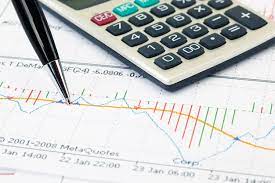The rise of online trading has given traders access to unprecedented benefits, including the ability to trade anytime, anywhere, and with a range of financial instruments. One of the most popular trading instruments in the online trading world is contract for difference (CFD). A CFD is a financial contract that allows traders to speculate on the price movement of an underlying asset, without owning the asset itself. To enjoy the benefits of CFD trading, traders need to work with CFD brokers who act as intermediaries between traders and the financial markets. In this blog post, we’ll explore the role of cfd broker in modern trading and how they help traders to achieve their investment goals.
Enabling access to financial markets
The primary role of a CFD broker is to provide traders access to the financial markets. CFD brokers offer traders access to a range of markets, including Forex, stocks, indices, and commodities. Traders can access these markets through various trading platforms offered by CFD brokers – such as MetaTrader 4 and MetaTrader 5. The trading platforms come with advanced features such as charting tools, financial news, and technical analysis indicators that enable traders to analyze the market and make informed trading decisions.
Providing leverage and margin facilities
CFD brokers offer traders leverage and margin facilities that enable traders to gain exposure to a range of financial markets with a smaller initial investment. Leverage allows traders to control a large amount of capital with a smaller deposit, thus enabling them to take advantage of market movements even with limited funds. CFD brokers typically offer leverage ratios ranging from 1:2 up to 1:200. Margin requirements vary from broker to broker, and may also depend on the market being traded. Using leverage carries significant risks, as traders could lose more than their initial investment. Therefore, it is important for traders to use leverage responsibly and with proper risk management practices.
Offering trading education and support
CFD brokers offer trading education and support to traders at different levels of experience. The education and support may come in the form of webinars, tutorials, eBooks, and demo accounts. The webinars and tutorials cover different trading topics, including strategies, market analysis, and risk management. Demo accounts provide traders with an opportunity to practice trading in a risk-free environment. Besides, CFD brokers have dedicated customer support teams that provide 24/7 support to traders via phone, email, or live chat.
Facilitating fast order execution
CFD brokers enable traders to execute orders quickly and efficiently. Fast order execution is important in online trading because prices can move rapidly, and a delay in order execution could lead to missed opportunities or losses. CFD brokers use advanced trading technology, including Electronic Communication Networks (ECNs), Straight Through Processing (STP), and No Dealing Desk (NDD) execution models to ensure fast order execution. ECNs connect traders directly with liquidity providers, ensuring transparency and fair market pricing. STP execution models ensure that all orders are executed automatically, with no intervention from the broker. NDD execution models provide traders with direct access to the market, and brokers earn their revenue through a commission on the trade, rather than through the spread.
Offering a range of trading tools and features
CFD brokers offer traders a range of trading tools and features that can help them to improve their trading performance. These tools and features include stop-loss orders, limit orders, trailing stop orders, hedging facilities, and automated trading tools such as Expert Advisors (EAs). Stop-loss orders and limit orders are risk management tools that enable traders to lock in profits or limit losses in the event of adverse market movements. Trailing stop orders can be used to automatically move the stop-loss level to lock in profits as the market moves in favor of the trade. Hedging facilities allow traders to open positions in opposite directions to manage risk. Expert Advisors are automated trading tools that execute trades based on pre-defined trading strategies.
Conclusion:
CFD brokers play a crucial role in modern trading by enabling traders to access the financial markets, providing leverage and margin facilities, offering trading education and support, facilitating fast order execution, and providing a range of trading tools and features. When choosing a CFD broker, traders should consider several factors such as the reputation of the broker, the trading instrument offered, the trading platform used, the transparency of pricing, customer support, regulatory compliance, among others. By working with a reputable CFD broker and using proper risk management practices, traders can maximize their chances of success in online trading.



